This year, COVID restrictions mean that BYG 2021 will be an online event organised by the University of Cambridge. The event will be an opportunity for yeast researchers in the UK and Ireland to meet virtually to present and discuss their latest research. The three-day programme will include invited lectures, offered papers, poster flashes, poster sessions and break-out discussions. It will also be an opportunity to reflect on the current state of yeast research and discuss the directions in which the field should move in the future. To that end, the programme will include a panel discussion, chaired by Nobel Laureate, Paul Nurse, focusing on the future of yeast research, in which questions and comments will be welcome from the audience.
British Yeast Group 2021 joining instructionsFurther information will be announced in the build up to the meeting on our social media channels and you can follow us on Twitter @MicrobioSoc using the hashtag #BYG21
Image credit: Dr Elizabeth Bilsland
Please find below more information about our invited speakers, who will present their work and research at British Yeast Group 2021: The future of yeast research.
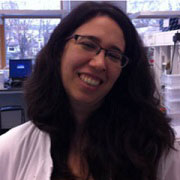
Liz Ballou is a Wellcome Trust Henry Dale Fellow who works on the cell biology and genetics of non-model fungal pathogens affecting human health. Liz earned her PhD from Duke University in the Genetics and Genomics of Cryptococcus neoformans in 2012, then moved to the University of Aberdeen to study the Candida albicans response to the host environment. In 2015 she was awarded a BBSRC Anniversary Future Leader Fellowship and launched her lab at the University of Birmingham in 2017, where her team studies Cryptococcus neoformans morphogenesis, specifically the molecular mechanisms governing the switch from small haploid yeast to large polyploid titan cells. She joined the University of Exeter Centre for Medical Mycology in 2021.
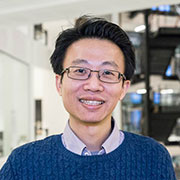
Professor Yizhi Cai (YC) has an unusual engineering background, gaining a first-class degree in Computer Engineering in China, a Master’s in Bioinformatics from the University of Edinburgh, and a PhD in Computational Biology and Genetics from Virginia Tech, USA. YC carried out his postdoc fellowship at Johns Hopkins University School of Medicine, working on engineering biology and genomes under Prof. Jef Boeke (US National Academy of Sciences member). This interdisciplinary training has enabled him to lead a unique and highly interdisciplinary research group that develops state-of-the-art design, manufacturing and characterisation technologies to engineer synthetic genomes, whilst continuing to pioneer disruptive approaches in synthetic biology. In 2013, YC returned to the UK to start his own research group with a prestigious Chancellor’s Fellowship at the University of Edinburgh. During his four year stay in Edinburgh, YC’s leadership helped his group publish over 40 high impact papers (including seven in Science). Alongside this excellent scientific output during his time in Edinburgh, YC also co-founded the Edinburgh Genome Foundry and was awarded early tenure with a subsequent promotion to Reader. In 2017, YC moved to the University of Manchester to take up a new Chair of Synthetic Genomics. Despite being only seven years into his independent research career, YC has established himself as a leader in synthetic genomics internationally.
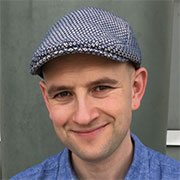
Tom Ellis is Professor in Synthetic Genome Engineering at Imperial College London. Tom has a degree in Molecular Biology from Oxford University and a PhD in DNA-binding Pharmacology from Cambridge University. Tom worked in a drug development company in London, then spent two years as a postdoc investigating synthetic biology at Boston University before starting his own group at Imperial College London. His research team develop synthetic biology and genome engineering tools for Baker’s yeast and apply these in projects to make therapeutic molecules, biological sensors and functional living materials.
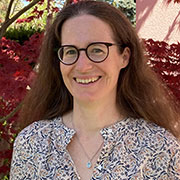
Sophie Martin was trained at ISREC with Susan Gasser, the Wellcome/CR UK Gurdon Institute with Daniel St Johnston and Columbia University with Fred Chang, where she started studying cell polarization and the cytoskeleton in the fission yeast. In 2007, she joined the Center for Integrative Genomics at the University of Lausanne as a Swiss National Science Foundation Professor. In 2010, she was appointed Associate Professor and promoted to Full Professor in 2018 in the Department of Fundamental Microbiology, of which she is the current director. Her research interests centre around fundamental principles of cell polarization and cell fusion, for which she earned international recognition. In 2009, she was elected as an EMBO Young Investigator, in 2012 she received the WICB Junior Award from the American Society for Cell Biology, and in 2014 the Friedrich Miescher award and the EMBO Gold medal. She was elected EMBO member in 2020.
Twitter: @SophieMartinLab
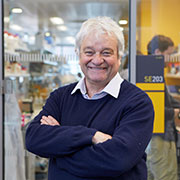
Paul Nurse is a geneticist and cell biologist who has worked on how the eukaryotic cell cycle is controlled. His major work has been on the cyclin-dependent protein kinases and how they regulate cell reproduction. He is Director and Group Leader at The Francis Crick Institute in London and has served as President of the Royal Society, Chief Executive of Cancer Research UK and President of Rockefeller University. He shared the 2001 Nobel Prize in Physiology or Medicine. In 2020 he wrote a book “What is Life” which has been published in 22 countries.
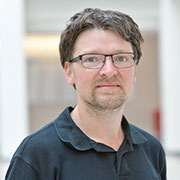
Markus Ralser Professor, Dr, Mag. (*1980), Einstein Professor of Biochemistry, is a leading scientist in the field of cellular metabolism and high-throughput mass spectrometry. His laboratory focuses on dissecting the biochemical and evolutionary logic of metabolism. He has made significant contributions in understanding how cellular metabolism is controlled at the scale of the genome, and how cells reconfigure metabolism to survive stress situations. The Ralserlab is further known for its work in high throughput proteomics, a technological development driven by the need to understand metabolic networks in which hundreds of enzymes interact through interconverting an even higher number of metabolites. M Ralser is currently the head of Charité’s Institute of Biochemistry and a Senior Group leader at the Francis Crick Institute in London. With a PhD background in Neuroscience, Markus started his independent scientific career as a Junior group leader at the Max Planck Institute for Molecular Genetics. In 2011, he then moved to the Cambridge Centre for Systems Biology and the Department of Biochemistry, University of Cambridge, and later, the Francis Crick Institute. Markus Ralser is the recipient of several notable science awards which included two ERC grants (Starting grant, Synergy grant), the Wellcome Beit Prize, the BioMed Central Research Award, the Colworth Medal of the Biochemical Society, the Starling Medal of the Endocrinological Society, and most notably, the EMBO Gold Medal. He is an EMBO Member.
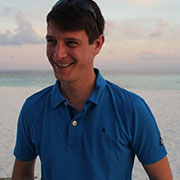
Joseph Schacherer is a Professor of Genetics and Genomics at the University of Strasbourg. Following the completion of his PhD, he joined the laboratory of Leonid Kruglyak at the Lewis-Sigler Institute of Integrative Genomics at Princeton University (New Jersey, USA), where he began work on genomic approaches to study population genomics and intraspecies phenotypic variation. In 2007, he joined the Institute of Genetics, Genomics and Microbiology (University of Strasbourg - Centre National de la Recherche Scientifique) and brought together an experienced team of researchers with expertise in population genomics, genetics, bioinformatics and data analysis crucial to set up high-throughput sequencing and phenotyping experiments and analyze the data generated. The group’s long-term goal is to use population and functional genomics to have a better insight into the rules that govern the genotype-phenotype relationship within species. In this context, he led the 1002 yeast genomes project. He was nominated member of the Institut Universitaire de France in 2016 as well as Fellow of the Institute of Advanced Study of the University of Strasbourg in 2017.
Twitter: @jo_schacherer

Harry is Managing Director of Singer Instruments, dedicated to developing laboratory automation to accelerate research for biological scientists who want to make the world a better place. With a background in physics, Harry completed a PhD at UCL in Quantum Chaos in 2004, building lasers to induce and study chaos within arrays of super-cooled atoms.
In 2008, Harry transitioned to mechatronics for life sciences by taking on 3rd generation ownership of Singer Instruments. He now supports over 60 staff, supporting and collaborating with customers in over 60 counties, from premises and applications laboratories in Exmoor, California, Singapore and Germany. Harry surfs, kitesurfs and plays the ukulele – badly!
LinkedIn
Twitter: @SingerInst
Abstract submissions for the British Yeast Group 2021 meeting are now closed.
Microbiology and Formedium are pleased to provide the ‘Most Promising Science Prize’ to four scientific posters at the British Yeast Group meeting. The winners, selected by members of the organising committee will win a cash prize and be featured on the Microbe Post. All posters displayed at BYG 2021 are automatically entered for the prize.
Emails notifying submitters of the status of their submissions will be sent week commencing 4 October.
The Microbiology Society is pleased to present a book of abstracts for the posters being presented at British Yeast Group 2021.
Posters will be presented at two dedicated sessions during the meeting and will be viewable on the event platform from Tuesday 30 December.
The poster session times are below, please note all times are in GMT:
Every poster will have its own dedicated breakout room during the sessions. Delegates will be able to navigate between the rooms to view posters within the allocated timeslot.
Society Conference Grants of up to £15 are available to support eligible members wishing to present at this Focused Meeting. Funding is also available for members requiring support for caring costs associated with conference attendance.
Applications will open for a two-week period between 7–21 October 2021 for support towards conference registration.
Members of the Society who are ineligible for a Society Conference Grant may apply to the 1 September 2021 deadline for our Travel Grants.
Please contact [email protected] for further queries.
Registration is now closed.
Members get heavily subsidised registration fees for Annual Conference, Focused Meetings and other Society events – both online and in-person. Join now to enjoy these discounts and many other opportunities that are designed for microbiologists at all stages of their career
| Non-member | £90 |
| Full member | £30 |
| Concessionary member | £15 |
| Student member | £15 |
| Affiliate Member | £45 |
To ensure the meeting remains of value for the scientific community, small charges apply to reflect some of the incurred costs associated with delivering the online meeting.
Singer Instruments and the Carl Singer Foundation will be providing early career researchers with free registration to this Focused Meeting and Microbiology Society membership for 2022.
If you are a postgraduate student or postdoctoral researcher working in the field of yeast, you can claim your free place, using the following discount code: NnEmTHbv
The discount code must be entered at ‘Stage 3 – Checkout’ by clicking on the ‘+ Discount code’ option underneath the table. Enter the discount code in the box then press ‘Apply’ before adding your address. When you continue to ‘Step 4 – Confirmation’ the new total should be visible and you can confirm your registration.
All eligible delegates who use the discount code and then attend BYG in December will be contacted following the event with details of how to join the Society free of charge for 2022
Upon registration, you should receive an automated confirmation email. Please contact [email protected] if after 24 hours this has not been received.
All registration fees must be paid in full before the start of the event. Any outstanding registration fees must be paid before any joining instructions containing information on how to access the event are sent out.
Please inform the conferences team if you can no longer attend the event after registering by contacting [email protected]. Refunds are not provided; however, substitutions of attendees can be made at any time.
British Yeast Group 2021 will be accessible remotely and will use virtual event technology to provide a comprehensively curated scientific programme for the conference.
A link will be updated on this page closer to the event to allow you to access the virtual platform via your web browser. We advise that you use the Google Chrome browser to ensure the best optimisation.
When prompted, please enter your email address and set up a password to access the event platform. Please note, the email address you use here should be the same email address that you used to register your place. Once you have signed in, you will be asked to set up a short profile, allowing other attendees to see some basic details about you.
If you have any issues signing in to the platform, please email [email protected].
Sponsorship opportunities are available for this meeting.
Please download our sponsorship pack to view our exciting new digital options. Our options suit varying budgets and help create the opportunities you need to connect with new and existing customers. If you have any questions about the packages or the digital options available please email [email protected].
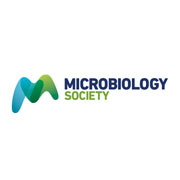
|
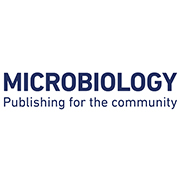
|
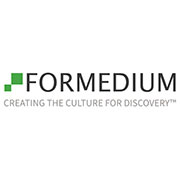
|
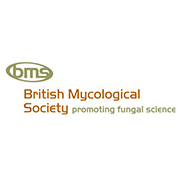
|
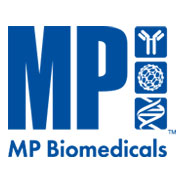
|
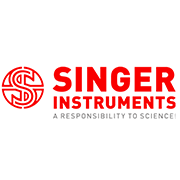
|